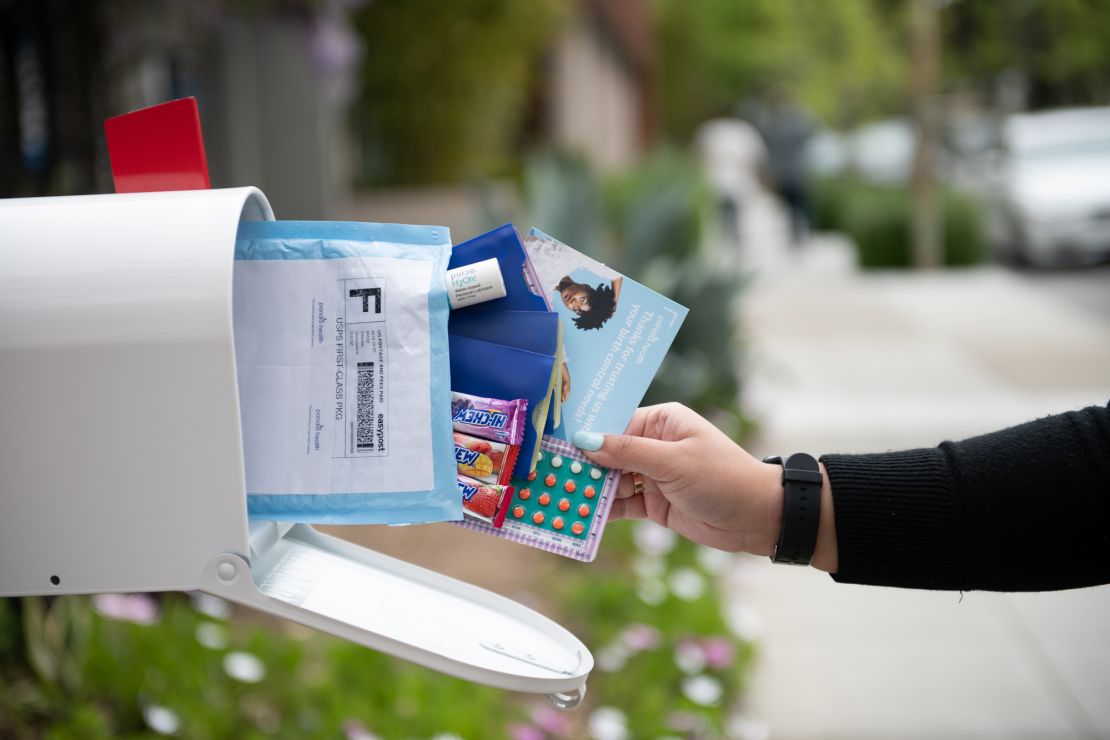Dr. Sophia Yen wants to make it as easy as possible for women to gain access to birth control, whether they have health insurance or not.
Five years ago, Yen, a pediatrician and a reproductive health specialist, was preparing to deliver a talk to a group of physicians about the reasons why women don’t take their birth control.
As she researched the issue, she was struck by one particular insight she read in an academic paper: “One of the top reasons women skip their birth control medication is because they don’t have it on hand,” said Yen.
In 2016, Yen conducted her own survey of 123 women between the ages of 21 and 35. One of the key findings: Women said they just didn’t have time to go to the pharmacy sometimes.
Yen spoke about the issue with her friend Perla Ni, an entrepreneur and an advocate of reproductive rights, and the two devised a solution. “We thought, why not just ship birth control directly to women? ” recalled Yen.

To test their idea, they ran ads for birth control on Facebook (FB) and Google (GOOG) for a month. They partnered with local pharmacies and offered free shipping.
About 100 women responded. “60% of the women who responded to the ad said they didn’t have a prescription at all for birth control or that it had expired,” said Yen.
By July 2016, Yen and Ni had assembled a team and launched Pandia Health, an online service that prescribes, refills and offers free delivery of birth control to women, regardless of whether they have insurance or not.
“What we are is telemedicine and a pharmacy under one roof,” said Yen.
If women don’t have a prescription or insurance, they fill out a questionnaire, providing their latest blood pressure reading, and pay $29 for an online doctor’s evaluation (Pandia Health has an in-house panel of four doctors, including Yen) and get free delivery. Women with existing prescriptions who only want the free delivery option provide their date of birth, insurance information and shipping address.
“With no insurance, the lowest price we offer is $20 for a one-month supply [of birth control pills] or a three-pack for $15 a month,” Yen said. The ring or patch is $150 a month.

Prescriptions are mailed monthly, every three months, or annually, depending on what the doctor and insurance allow, said Yen. The company has two partner pharmaciesand Yen said Pandia hopes to open its own pharmacy in the future.
Solving simple, yet big problems
Yen and Ni, along with three other co-founders, raised $650,000 from family and friends to get the business off the ground. Since then, Pandia Health has raised a total of $2.15 million in capital from outside investors, including Precursor Ventures and Allectus Capital.
“Often the most successful startups solve simple, big problems,” said Matthew Gould, a director with Allectus Capital. “We saw a smart physician, wanting to deliver to women a service common elsewhere in the world. For us, like Dr. Yen, it made no sense that the vagaries of the US health system prevented women from getting the medication they wanted when and where they needed it, easily.”
For now, the business relies mostly on insurance reimbursements. “We make money the same way that any other pharmacy makes money. It’s through the [cost] difference between what the insurance reimburses for medication and what we pay to buy the medication [from pharmacies], minus overhead costs,” said Yen.
But Yen is looking to diversify the company’s revenue. For example, Pandia Health currently offers free product samples in each shipment from companies that cater to women. Yen said the company might start charging a fee for including these samples in the orders.
Preventing unplanned pregnancies
Yen has been passionate for years about ensuring women have access to birth control. “It’s so important if we’re to prevent unplanned pregnancies,” she said.
She recalls being 15 years old and a volunteer with Planned Parenthood. “I would run pregnancy tests,” she said.
![Yen with her daughter Stephanie [right] and Anjali Parikh, a former marketing intern at Pandia.](https://media.cnn.com/api/v1/images/stellar/prod/190605121417-pandia-health.jpg?q=w_1110,c_fill)
One time, Yen delivered the test to a 13-year-old. It came back positive. “I knew this would change her life forever. I thought about how different this could have been for her if she had access to birth control and comprehensive sex education,” said Yen, who is now 47.
And she thought about how different her own life has been: “I went on to MIT as an undergrad, and University of California (San Francisco) Medical School. I did my residency in pediatrics and a fellowship in adolescent medicine.”
She became a professor of pediatrics at Stanford Medical School and along the way co-founded two nonprofits – the Silver Ribbon Campaign to Trust Women and SheHeroes.org – both focused on supporting womens’ reproductive health decisions. Yen was teaching at Stanford when she decided to launch Pandia Health.
Providing access to women
Gould said Pandia Health’s competitive market advantage is trust. (Plus, as an extra bonus, each package comes with “free goodies,” such as candy, chocolate, or discount coupons on vibrators, which also helps.)
“This is not a sales platform from a pharmacy chain, or a purchasing portal pushed by Big Pharma. It is women doctors providing healthcare to other women,” he said.
The business logged $360,000 in annual revenue in 2018 and is growing, said Yen. “We aren’t profitable yet. But we are hoping to capitalize on new marketing opportunities to increase revenue.”
More from Success
Oliviya Boling-Mejia, 25, came across Pandia Health on Facebook in November.
“I was in between jobs. I didn’t have health insurance and I was trying to find a doctor I could trust to get access to birth control because I can’t afford kids yet,” said Boling-Mejia, who lives in California and teaches infants and toddlers.
She spoke with Dr. Yen, who recommended a cheaper birth control option for her. By switching pills, she said it helped her save $325 every three months.
“But more than that, it’s the access they provide. I can send them a text message through the secure portal if I have a question and they get back to me quickly,” she said.
Yen’s vision for Pandia Health is for it to become a hub for a variety of women’s health needs and education.
“I want us to help them with their periods, if they decide they want to take birth control in order to skip their periods,” said Yen. “Or to help them with acne, wrinkles or with menopause. I want Pandia Health to grow as women grow.”

























